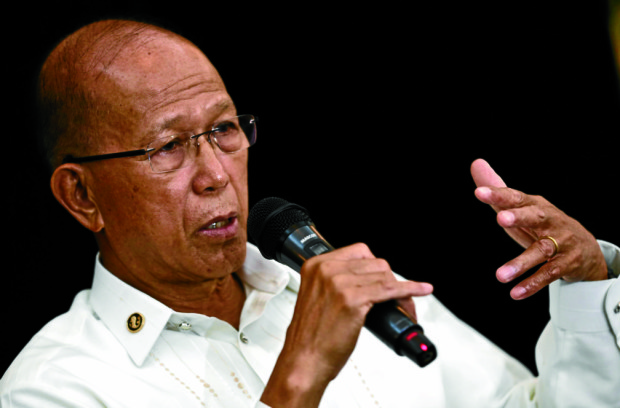Defense ties between Washington and Manila have hit “bumps on the road” but the Filipino military could manage if treaty ally the United States were to pull out aid, Defense Secretary Delfin Lorenzana said on Friday.
Manila intended to buy arms from China and Russia in the future and there had been no adverse reaction from within the military to President Duterte’s vows to scale back defense ties with the United States, he said.
Lorenzana’s remarks suggested he was following other top officials in President Duterte’s administration in rallying behind the maverick president’s tough anti-US agenda after weeks of scrambling to manage the fallout from his outbursts and threats to downgrade the alliance.
The President recently drew parallels between his antidrug war and Adolf Hitler’s genocide, triggering an international condemnation. He has apologized for the statement, but has said he was not sorry for hitting out at the United States and the European Union for continuously calling him out on extrajudicial killings.
Conciliatory tone
Lorenzana set a conciliatory tone on Friday, saying Mr. Duterte may have been misinformed when he said US-Philippine military exercises were of no benefit to his country.
However, he sought to minimize the US defense aid to the Philippines as “not that much” and said the military could ask Congress to make up for a shortfall of some $50 million-$100 million a year in US military aid expected to be lost.
“We can live without (that),” Lorenzana told the Foreign Correspondents Association of the Philippines.
Plans on hold
He said plans for joint patrols and naval exercises in the disputed South China Sea have been put on hold as President Duterte desires.
Also, the 107 American troops involved in operating surveillance drones against Abu Sayyaf militants would be asked to leave a military camp in Zamboanga City as soon as the Philippines acquires those intelligence-gathering capabilities in the near future.
Additionally, he said some 28 joint Philippine-US military exercises were being carried out each year, but that the president wants a current training exercise to be the last in his six-year presidency.
Mr. Duterte, well known for a ruthless stand against crime from his years as mayor of a southern city, won the election in May on a promise to wipe out drugs and drug dealers.
Some 3,600 people have been killed in his antidrug drive and he has been enraged by questions about human rights, from the United States and other countries, that the bloodshed has raised.
The President said on Thursday that should the United States and European Union objected to his drugs war and wished to withdraw aid, they should do so, and the Philippines would not beg.
US assistance
US state department spokesperson John Kirby responded by saying that total US assistance to the Philippines in the fiscal year that began on Oct. 1 was $180 million “and we’re committed” to delivering that.
Lorenzana said he believed Mr. Duterte’s objective was to diversify the country’s foreign ties and cut dependency on its former colonial ruler to one that is “not too dependent on one country.”
This follows a warning from the President that he might “break up” with the United States. Earlier this week he told US President Obama to “go to hell.”
Bumps on the road
Lorenzana said there had been no official directive to scrap the 2-year-old Enhanced Defense Cooperation Agreement. He said the uncertainty in the US-Philippines relationship was “just going through these bumps on the road.”
He said Mr. Duterte was sensitive to concerns about his drug war and it was likely the president would dial down his rhetoric if questions from the West about human rights stopped.
“He gets very sensitive of that and he lashes back at his critics,” he said. —Wires
